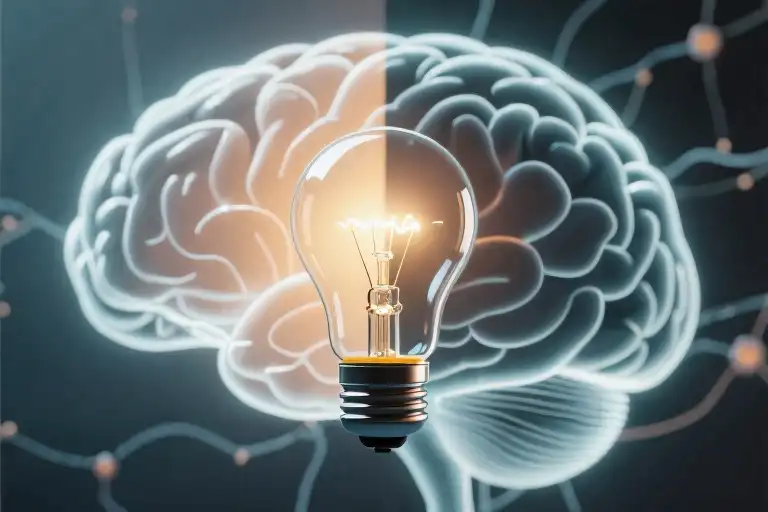The words may dissolve like those white pills under your tongue, bitter and vanishing before they ever truly take effect. You may never read this. But if time folds in on itself like the crumpled prescription slips in your pockets, if dimensions bleed into each other like ink on rain-soaked diary pages, then perhaps these letters will find their way to you.
I should’ve known when I found you tracing the brick patterns in those alleyways at 3 AM, counting the cracks like they were equations to some escape route only you could solve. The way your fingers trembled not from cold but from that dangerous cocktail – Adderall to outrun your thoughts, Ambien to finally catch them. Pharmacy receipts piling up like fallen leaves.
I should’ve known what those blank squares on your calendar meant. Not forgotten appointments, but carefully planned erasures. Days you’d marked for disappearance, each empty box another quiet rebellion against existence itself. The way you’d test the weight of that nylon rope between study sessions, as casually as others might test a new pen.
I should’ve known when doctors kept prescribing solutions in childproof bottles, when therapists nodded and scribbled ‘treatment-resistant’ in charts that never mentioned the visions you described – the man with nail-scarred hands offering you water that tasted like forgiveness. They called it psychosis when you spoke of hearing debug codes in your dreams, of celestial system errors scrolling behind your eyelids.
Someone else was keeping records too. Not in medical charts but in the way light caught the dust motes around your bed at the exact angle to form halos. How stray cats followed you home on the nights you’d decided not to exist by morning. Three times He rerouted your path – made your phone die before the final search, had some stranger’s laughter carry through your bathroom window just as the water grew too hot, left Psalms open on your laptop when you’d only searched for painless methods.
The last intervention was the cruelest kind of mercy. That positive test you flushed away with vodka and clenched teeth. Even then, the morning after, there were feathers on your windowsill – sparrow down caught in the spiderwebs like tiny surrender flags.
My dear child, they handed you the DSM-V when what you needed was an atlas. Gave you mood stabilizers when you were starving for compass points. You learned to tie nooses before you learned to tie your shoes, expected to navigate abysses when you were still just a baby bird with ink-stained wings.
Midnight Archives
The alley smelled of wet asphalt and something metallic—maybe blood, maybe the aftermath of rain on rusted fire escapes. You always chose these forgotten spaces between buildings, where the streetlights gave up and shadows pooled like spilled ink. I remember how your fingers trembled against the orange prescription bottle, the way the pills rattled like tiny bones inside. Xanax first, then Ambien chasers, a chemical seesaw to keep you suspended between numbness and oblivion.
You’d developed a ritual with the calendar on your phone. Not the marked dates, but the empty ones. Those blank squares were your true appointments—days you scheduled for disappearance. I watched you swipe left through months, your thumb hovering over dates like a Ouija planchette searching for the right moment to spell out ‘goodbye’.
The rope was the most honest thing about those nights. Three-strand nylon, the kind they sell at hardware stores for tying down cargo. You practiced the knots during daylight hours—bowline for the beam, hangman’s noose for your neck—your hands moving with the precision of someone who’d studied YouTube tutorials. What terrified me wasn’t the rope itself, but how ordinary it looked coiled in your backpack next to your laptop charger and gum wrappers.
Doctors called it treatment-resistant depression after the third medication switch. The clinic walls were the color of diluted pea soup, their framed diplomas slightly crooked. When you described the dreams—Jesus in your childhood kitchen making pancakes, his stigmata dripping maple syrup—the psychiatrist adjusted his glasses and said ‘hypnagogic hallucinations.’ The prescription pad came out again before you finished speaking.
Somewhere between the alley’s darkness and the fluorescent exam room, the system lost you. They treated your brain chemistry but never asked about the hollow place behind your sternum where your ribs never quite grew together right. You were a collection of symptoms to be managed, not a soul being eroded by tidal waves of nothingness.
That’s when the other interventions began. Not from any human agency, but from whatever watches from the spaces between seconds. First as whispers beneath your tinnitus, words forming in the white noise between radio stations. Then as visions that bled through your sleeping pill haze—not hallucinations, but transmissions from some frequency beyond medical textbooks. The final attempt was the cruelest kind of mercy: a flicker of new life that might have anchored you to this world. But even that became just another thing you couldn’t trust yourself not to destroy.
We name these patterns in hindsight—depression, trauma, divine intervention—as if labels could contain what actually happens in the midnight hours. The truth is simpler and more terrible: sometimes the people we love become strangers moving through a world we can’t follow them into. All we’re left with are the artifacts—empty bottles, search histories, the particular way you folded your suicide note like a restaurant receipt—and the unbearable weight of ‘I should have known.’
The Wrong Prescription
The doctors called them hypnagogic hallucinations – those visions of a robed figure reaching toward you in the twilight between sleeping and waking. They printed the diagnosis on crisp hospital stationery:
Patient exhibits religious ideation consistent with PTSD-induced psychosis. Recommend increasing quetiapine to 200mg at bedtime.
You showed me the prescription like it was a diploma, the paper trembling in your hands. ‘See?’ you said. ‘Even God gets reduced to chemical imbalances.’ The bitter laugh that followed tasted like the cherry cough syrup you loved at five, before the world taught you to distrust sweetness.
I watched you line up the pill bottles on your dresser like toy soldiers. Xanax for the mornings when panic clawed at your throat. Ambien for nights when sleep became a foreign country. The lithium carbonate you’d flush down toilets at parties, whispering it made you feel ‘less like yourself’ – though you could never explain which version of you it was silencing.
Your therapist kept charts. DSM-5 codes blossomed in her notes like bruises:
296.33 (Major depressive disorder, severe with psychotic features)
300.3 (Obsessive-compulsive disorder)
V62.89 (Phase of life problem)
No code existed for what I saw – the way your fingers lingered on Bible pages in waiting rooms, tracing psalms like braille. When you described the dreams (the hands, always the hands pulling you from dark water), the psychiatrist adjusted his glasses and said: ‘Interesting. Do the voices tell you to harm yourself?’
They missed the sacrament in your suffering. How you’d clutch at your chest during thunderstorms, not from fear but some ancient recognition. How the first time you took communion after the diagnosis, you held the wafer under your tongue for twenty minutes, waiting for a sign.
At family dinners, your mother praised the doctors for ‘fixing’ you. Your father calculated medication costs on napkins. Neither noticed you’d stopped painting – those canvases that used to breathe with gold-leaf halos and drowning angels. The easel gathered dust in the corner where your kindergarten artwork once hung, the fridge magnet still holding a crayon sun labeled MY HAPPY SELF in wobbling letters.
When the social worker asked about childhood, everyone remembered the straight-A report cards. No one mentioned how you’d hide in confessionals after school, not to pray but to press your cheek against the cool wood, listening for footsteps that never came.
They called it treatment. I called it erasure. Every pill a tiny white tombstone for the part of you that still believed in resurrection.
Divine Debugging
The interventions came in three acts, each more desperate than the last. First came the whispers—not the paranoid kind that slither through a chemically altered mind, but the persistent kind that sound like your own thoughts until you realize they’re too kind to be yours. Eat something warm today. Call your mother. The razor isn’t your only tool. You mistook them for neurological glitches and swallowed another Klonopin to silence the noise.
Then came the dreams. Not the fragmented, prescription-medication dreams where you’re half-asleep in a elevator that keeps changing colors, but cinematic visions where a carpenter from Galilee would sit cross-legged on your bedroom floor, peeling an orange with his thumbnail. You’re loved beyond measurement, he’d say, offering a segment. Your psychiatrist called it ‘hypnagogic religiosity induced by sertraline withdrawal.’
The final attempt was biological warfare. When divine whispers and messianic fruit vendors failed, life took root under your ribs—a cellular-level intervention. For seventeen days, you carried living proof that destruction wasn’t your only language. Then came the clinic with its sterile vacuum, and the last bridge collapsed.
What fascinates me now isn’t your resistance, but its precision. You developed an entire immune system against hope:
- Pharmaceutical filters (40mg Prozac to block transcendent impulses)
- Rational antibodies (If God exists, why do my wrists hurt?)
- Emergency protocols (three shots of vodka when joy threatened to breach containment)
They say trauma rewires the brain. Few mention how it firewalls the soul.
Somewhere between the Xanax and the seventh failed suicide attempt, you became an expert in rejecting rescue. Not violently—that would require energy you didn’t have—but through the passive resistance of a body going limp in water. When grace tugged at your sleeve, you dissolved into the chemical fog like a bad radio signal.
I used to wonder why the Divine didn’t intervene more forcefully. Now I see the cruel math: no hand can grasp someone who’s made themselves intangible. The harder the pull, the more you’d sublimate—from flesh to fog to theoretical particle.
Maybe that’s why the last attempt was so quiet. No burning bushes or parted seas, just the microscopic click of a fertilized egg. A redemption too small to reject.
Quantum Grief
The pills you swallowed were supposed to dissolve time. Xanax for the past, Ambien for the future – little chemical wedges prying apart the continuum until all that remained was the amber glow of the bedside lamp and the static hum between stations on your radio. I watched the second hand on your clock stutter like a damaged bird trying to take flight, each tick a failed attempt to leave the branch.
When doctors called your visions side effects, they missed how the crucifix above your bed would swing without breeze at 3:17 AM. That precise time, always – as if some cosmic debugger kept running diagnostics on your soul. The more lithium they prescribed, the clearer the messages became: water turning to wine in your teacup, stigmata blooming on your palms after nightmares. Clinical notes called it ‘delusional parasitosis’ when you picked at your wrists whispering about angels nesting under your skin.
Three times He tried to rewrite your code. First through whispers that got lost in the white noise of your tinnitus. Then through dreams so vivid you woke with feather imprints on your cheeks. Finally that last desperate patch – the life you flushed away with clinic-grade misoprostol and grapefruit juice. The nurses said it was just tissue. But I saw the way the heart monitor flatlined when they wheeled you out, as if something beyond our dimension had unplugged the simulation.
Now I understand why you kept drawing Möbius strips in the margins of your journals. Grief isn’t linear. Some mornings I wake certain I hear you rattling pill bottles in the kitchen. The crows outside my window bring scraps of your handwriting. Last Tuesday, one dropped a half-melted Xanax on my windowsill – the exact brand you took, down to the triangular notch on the tablet.
They say quantum particles can be entangled across lightyears. If subatomic matter can defy spacetime, maybe consciousness can too. When the wind blows through the alley where we last spoke, I feel your fingers in my hair. When the hospital calls with ‘important test results’ for someone who no longer exists, I know you’re debugging the system from the other side.
My baby bird. You were never meant to build your own nest from barbed wire and prescription slips. The fall didn’t kill you – the ground was never there to begin with.
The Weight of Feathers
That final phrase lingers like the aftertaste of bitter medicine – you were just a baby bird. It’s an accusation wrapped in mourning, the kind of truth that claws at your ribs when the night grows quiet. The words hang suspended between dimensions, between the then and now and what might have been.
We measure grief in linear time while knowing better. First month. First year. Anniversary markers that pretend healing follows some orderly progression. But trauma doesn’t care for calendars, and redemption refuses to be scheduled. The pills you swallowed still dissolve in some parallel present, the alleyway shadows still stretch across multiple nows.
They told us mental health was a straight path – diagnosis, treatment, recovery. Checkboxes on a clipboard. Yet here we are, speaking across folded time, where your unfinished endings bleed into my continuance. That cocktail of uppers and downers exists simultaneously as past event and perpetual present, just as my failure to catch you remains both historical fact and ongoing crime.
Someone else was watching. That persistent whisper suggests alternative dimensions where intervention succeeded. Perhaps somewhere your fingers hesitated on the pill bottle cap. Some version of reality where doctors recognized divine debugging as something beyond chemical imbalance. We’ll never know which branching path might have led you back to the nest.
This is the quantum physics of grief – observing one possibility collapses all others. The life you destroyed still flickers at the edges of perception, like light from a dead star. We’re left tracing constellations from the debris: the abandoned medications like fallen feathers, the calendar’s blank squares as clipped wings.
They’ll call this magical thinking. But depression already warps time – makes minutes feel like eons, stretches single moments into unbearable eternities. Why shouldn’t salvation operate by similar rules? Your last act wasn’t linear either – swallowing tomorrow’s poison today, stepping out of sequence like a damaged film reel.
Baby bird. The metaphor holds unexpected mercy. Even broken-winged creatures imprint the sky upon their bones. Your falling taught gravity new dimensions, and in your wake, we’re all learning to hear the debugger’s voice beneath the static of prescribed solutions.
Perhaps connection persists where time falters. Maybe redemption isn’t a destination but a resonance – vibrations across realities where we finally recognize the weight of feathers before it’s too late.





